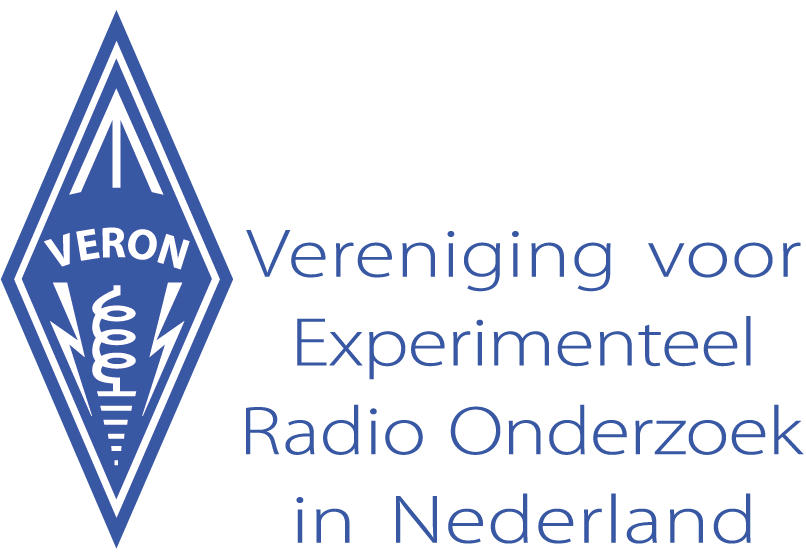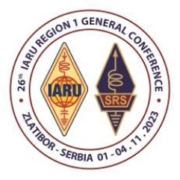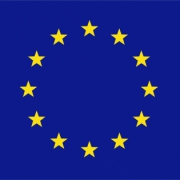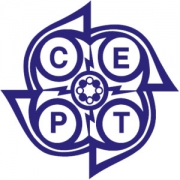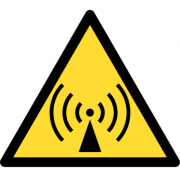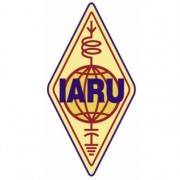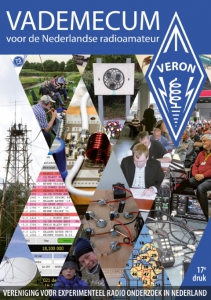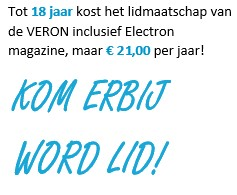IARU: ernstige zorgen over behoud van bruikbare amateurfrequenties
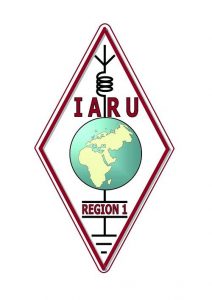
Op de openingsdag van de HamRadio beurs in Friedrichshafen gaf Don Beattie G3BJ, President van de IARU Region 1 een toespraak. Opmerkelijk in deze toespraak was Beattie’s uitspraak over het beschermen van ons frequentiespectrum. Daarmee bedoelde hij storing door elektrische apparaten en noemt voorbeeld zoals zonnepaneelinstallaties, windturbines, VDSL+ modems en draadloze laadinrichtingen.
Beattie hekelt overheden die te weinig toezicht houden
Zo vertelt Beattie dat het raar is dat er frequenties zijn met daarin allocaties voor radiozendamateurs, als die niet gebruikt kunnen worden door storing. Vooral in en rondom stedelijke gebieden raken amateurbanden steeds vaker onbruikbaar. Daarbij hekelt Beattie nationale overheden die moeten toezien op een schoon frequentiespectrum, maar daarin ernstig tekort schieten. Ook merkte Beattie op dat de “mist” van storing nog steeds toeneemt in plaats van afneemt.
Internationaal uitgekeken naar resultaten VERON’s ruismeetcampagne
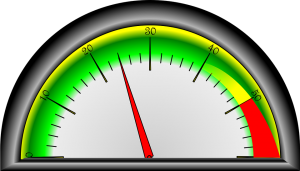
Na afloop Beattie’s toespraak, bleek uit gesprekken met IARU-officials en vertegenwoordigers van verenigingen uit andere landen, dat internationaal reikhalzend wordt uitgekeken naar de uitslagen van de uitgebreide ruismeetcampagne van de VERON. Die campagne is door onze EMC/EMF-commissie uitgevoerd met als doel, om storingen op de amateurbanden in heel Nederland te onderzoeken en in kaart te brengen.
De resultaten uit deze meetcampagne worden dit jaar nog op de IARU Region 1 conferentie gepresenteerd door de VERON delegatie. De tussentijdse resultaten uit de campagne liegen er overigens niet om, blijkt uit een eerdere tussentijdse rapportage aan het VERON hoofdbestuur.
Resultaten meetcampagne als wetenschappelijke publicatie
De resultaten uit deze meetcampagne worden in een officieel erkend wetenschappelijke publicatie verwerkt. De VERON zal deze uiteraard gebruiken om de druk op te voeren op instanties die verantwoordelijk zijn voor het toezicht op onze amateurbanden. Daarbij kijkt de VERON naar alle mogelijkheden die binnen haar vermogen liggen.
Intensievere internationale samenwerking
De toespraak van Beattie geeft duidelijk weer dat EMC-problematiek niet stopt bij de landsgrenzen, maar dat het een internationaal groot probleem is. De VERON zoekt daarom ook steeds meer internationale samenwerking om de problemen in IARU-verband aan te pakken.
VERON en IARU
De VERON is de officiële Nederlandse afdeling van de IARU. De internationale unie van radioamateurs. Via de IARU vertegenwoordigt de VERON internationaal de belangen van de Nederlandse radioamateurs en haar leden in het bijzonder. De IARU Region 1 omsluit de regio’s Europa, Afrika en het Midden Oosten.
Toespraak van Don Beattie G3BJ
Lees de hele toespraak van Beattie:
It is a great privilege for me that the theme of HamRadio 2017 is the International Amateur Radio Union. DARC has chosen that as the theme, no doubt in part because the three-yearly Conference of IARU Region 1 will be taking place near Munich later this year. We in IARU are most grateful to DARC for all the work being put into ensuring that the Conference will be a success.
I hope you will allow me a moment to reflect on why IARU matters to amateur radio and radio amateurs. We all know that the radio spectrum is a finite resource, and one which is in ever-increasing demand for commercial, civil and military uses. The pressures on spectrum are intense, and amateur radio needs to work very hard to ensure that we continue to enjoy privileged access to parts of the spectrum.
The way that spectrum allocations are determined has in the past been through the World Radiocommunication Conferences of the ITU, an agency of the United Nations. Increasingly now, the work at World Radio Conferences is preceded by a great deal of detailed work in the main Regional Telecommunications Organisations, or RTOs. The main ones of these are CEPT in Europe, CITEL in the Americas, APT in Asia-Pacific and ATU in Africa, together with ASMG in the Arab world and RCC in Russia and number of neighbouring states. The World Radio Conference cycle lasts several years and work for the next WRC in late 2019 started in early 2016.
IARU is the only organisation representing amateur radio which has formal representation in ITU and at all these RTOs and you can imagine that covering the range of WRC issues of interest to the Amateur Services in six RTOs, many with a number of committees and working groups involved in preparation for WRCs, is a huge task. The task is made even more complex by the fact that the RTO proposals to WRCs are the result of input from national spectrum regulators, and so influence and advocacy at national level is an essential part of the IARU role.
So IARU is involved at national level (through its national member societies), Regional Level and at the ITU in working for YOU to secure and retain amateur spectrum into the future. This work is done entirely by volunteers – we have no paid employees – and so you can understand, I am sure, that we are very dependent on people coming forward to help in this work.
But there is a second part to the core work of IARU – spectrum protection. It is of little value having radio spectrum allocated to the amateur service if it is made unusable by the presence of multiple sources of interference – be it electrical interference or intruders in the amateur bands. And so IARU is deeply involved in the work of the international standards organisations, arguing for common sense in the setting of emission standards for electrical and electronic devices. Areas which are of current concern are solar photo-voltaic generators, wind generators, digital devices, VDSL+ and Wireless Power Transfer. Some would say that even with the work we are involved in on standards, much of the radio spectrum is becoming unusable in the suburban environment, and I have sympathy with this view. Sadly the level of market surveillance taking place in many European countries is so low that products that fail to meet the relevant emission standards can be introduced to market on a “self-certification” basis with little likelihood of challenge. IARU will continue to work for common sense here, but I have to say that without a will amongst regulators to address the ever worsening “fog” of electrical noise, I am deeply concerned about our ability to maintain a usable radio spectrum in some parts of suburban Europe.
And one other important part of IARU’s work is the Monitoring System, which monitors the intruders in the amateur bands and in many cases is able to achieve resolution of problems through excellent working relationships with national regulators. We welcome the support of regulators in this work and will continue to work constructively with them.
You will also be aware of the work which IARU does to encourage sensible use of our radio spectrum through voluntary band plans to ensure that the many modes of interest to the amateur radio service can operate without undue inter-mode interference, thus maximising efficient spectrum utilization. IARU is the only organization with the breadth of representation around the world – we have 167 country member societies – that can bring together the many interests of radio amateurs to arrive at sensible band plans on a voluntary basis.
So that covers the core work of IARU in a few minutes. It can be summed up as working for spectrum access and privileges, working to protect the radio spectrum and ensuring efficient utilization of the amateur spectrum by all who use it.
And finally an advertisement. If you are in a position to help IARU, through your national member society, perhaps in meetings in RTOs or in standards bodies, please do offer to help. IARU is heavily dependent on a relatively small number of very capable people who are able to help drive the amateur radio agenda forward. But we need to look to the future and develop the IARU team for tomorrow. If you can help, please discuss what you have to offer with your national society or visit the IARU stand in the exhibition hall to learn more.
So I wish DARC and the organisers of HamRadio 2017 every success for another outstanding event, and I look forward to a successful Regional Conference near Munich later in the year.
